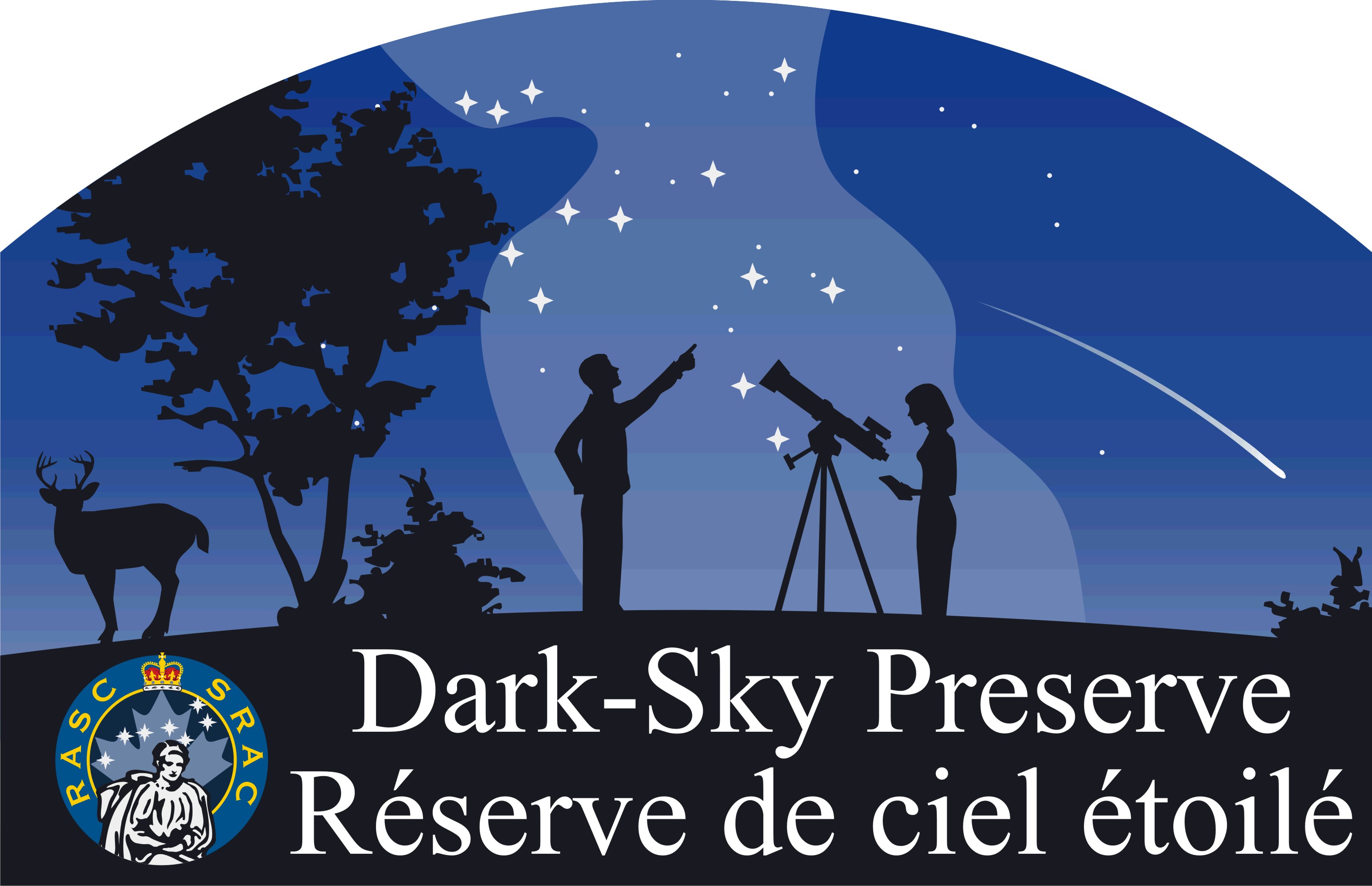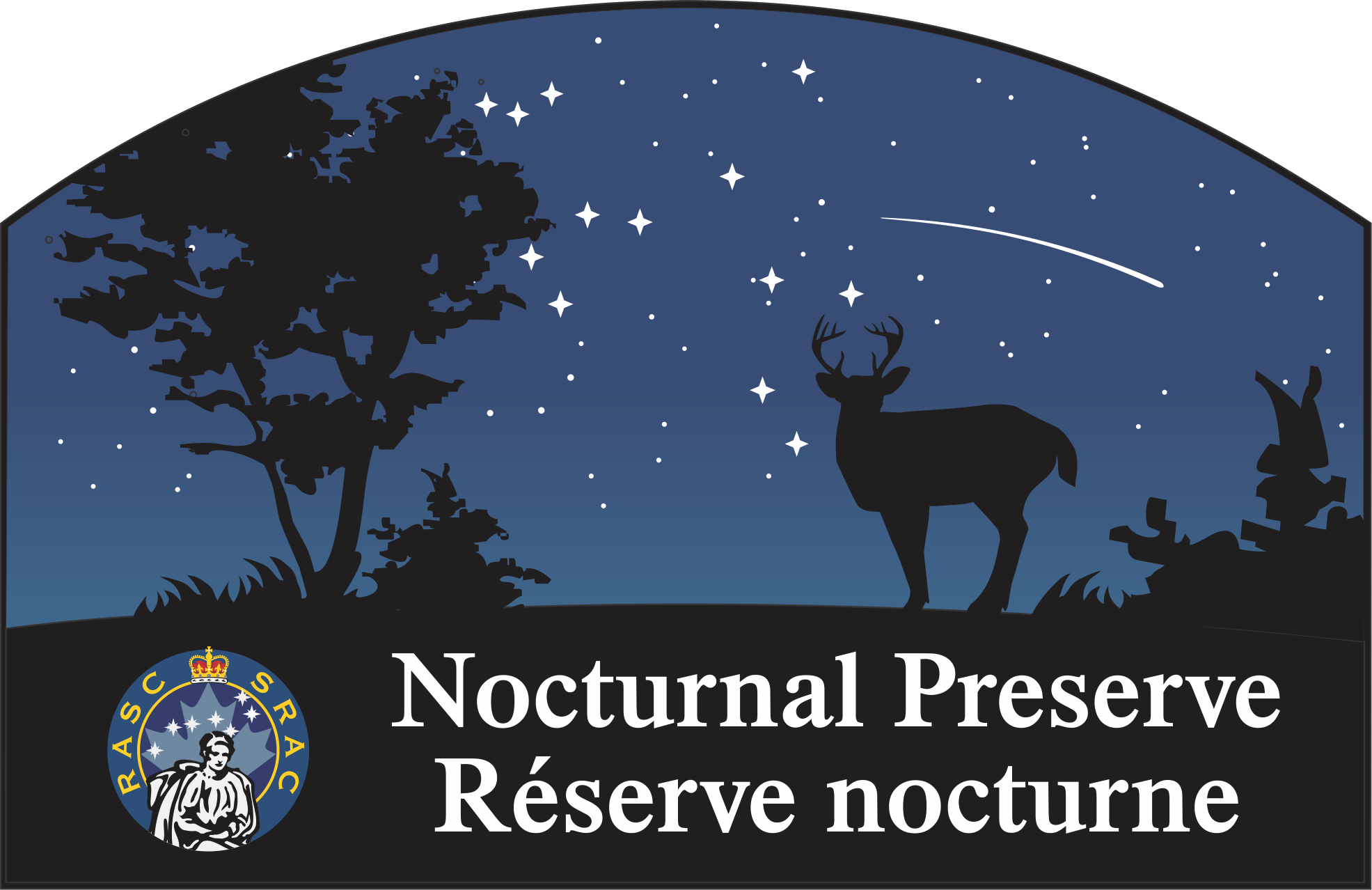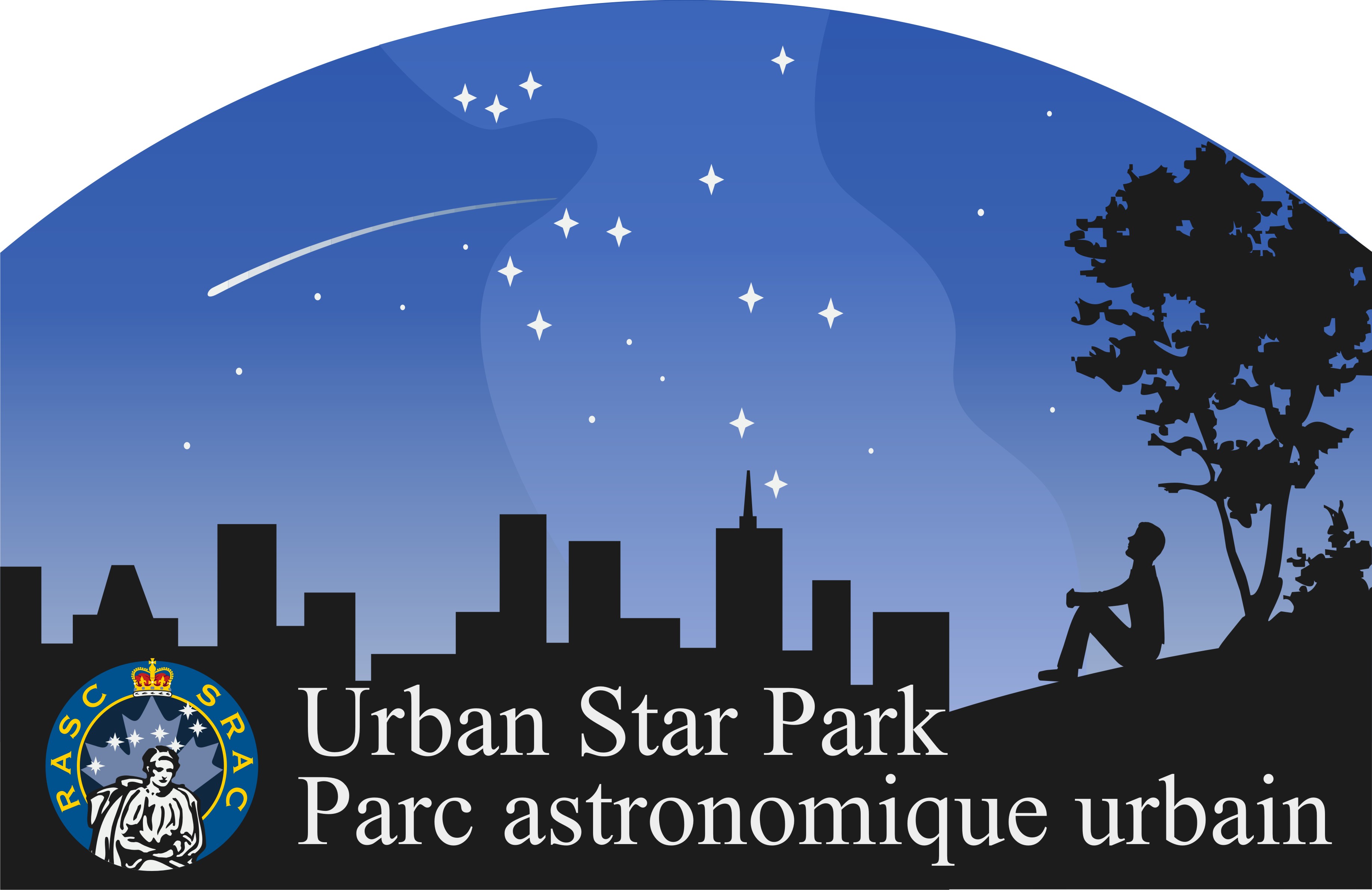Dark-Sky Sites Program
The aim of the Royal Astronomical Society of Canada's Dark-Sky Sites Program is to recognize sites that are contributing to the reduction of light pollution, educating the public about dark skies, and liaising with municipalities to improve lighting legislation. In order to receive a designation, sites must fulfill certain requirements in regards to lighting, sky quality, visitor experience, and municipal outreach.
There are three designations within the Dark-Sky Sites program: Dark-Sky Preserves, Nocturnal Preserves, and Urban Star Parks. Learn about each designation below.
Dark-Sky Preserve

A Dark-Sky Preserve is an area in which artificial lighting is very limited and strictly controlled, and active measures are in place to educate and promote the reduction of light pollution to the public and nearby municipalities. Sky glow from beyond the borders of the Preserve will be of comparable intensity, or less, to that of natural sky glow. Public are able to access the Preserve at night.
Nocturnal Preserve

A Nocturnal Preserve is an area in which artificial lighting is very limited and strictly controlled, and efforts to engage municipalities in the reduction of light pollution are ongoing. The primary focus is to protect the nocturnal environment. Nighttime access for astronomical viewing may not be possible. The Preserve delivers public education programs about the night sky, nocturnal environment, and light pollution abatement.
Urban Star Park

An Urban Star Park is an area in which artificial lighting is strictly controlled and active measures are in place to educate and promote the reduction of light pollution to the public and nearby municipalities. Skies are generally brighter than other designations due to nearby urban areas, but are still usable for astronomy.
Find a designated Dark-Sky Site in Canada near you!
